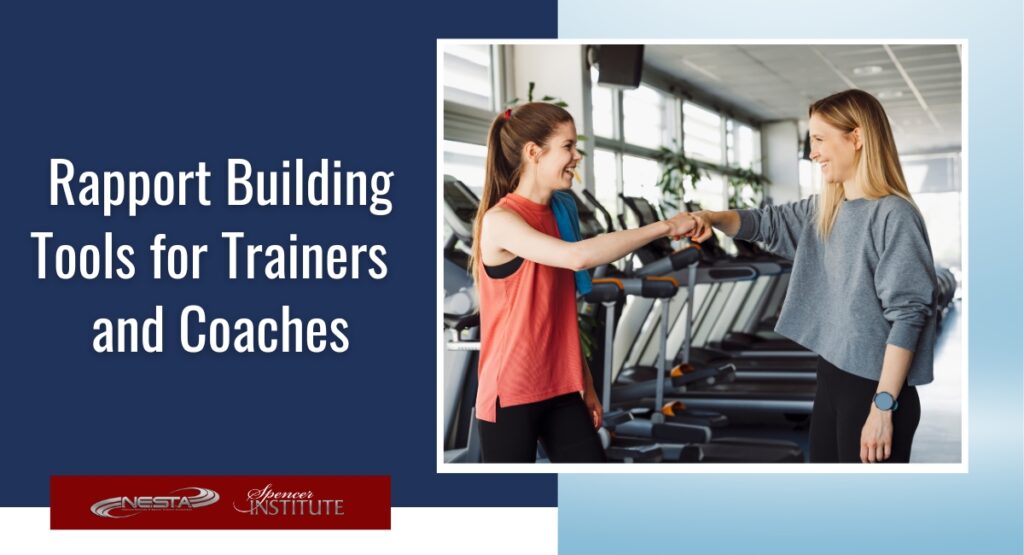
Why is Building Rapport Important as a Trainer or Coach?
Building rapport is a critical skill that is essential in building and maintaining relationships in all aspects of life, be it in sales, business, personal relationships, or even job interviews. Rapport is the foundation upon which trust, communication, and cooperation can be built, and without it, there can be no meaningful or long-lasting relationship.
For a coach or trainer, building rapport is critical. Aside from being able to deliver your services, your prospect or customer wants to like you. They want to talk positively about their experience with you. And if you are employed at a gym, health club or fitness center, you want to be able to build rapport and be likable to your coworkers and employer. Rapport is critical.
In this lesson, we will delve into the different ways of building rapport with customers in sales, building rapport in an interview, re-establishing lost rapport, and identifying the traits that make a person likable.
How to Build Rapport with Customers in Sales
Building rapport with customers in sales is crucial in closing deals and making sales. It involves creating a connection with the customer, getting to know their needs, and finding ways to meet those needs. Here are some ways to build rapport with customers in sales:
- Listen actively: Active listening is the most important aspect of building rapport with customers in sales. It involves paying attention to the customer, understanding their needs, and responding appropriately. When a customer feels heard and understood, they are more likely to trust and do business with you. Here is some additional information about improved listening and communication skills for trainers and coaches.
- Ask open-ended questions: Asking open-ended questions is an effective way of building rapport with customers. Open-ended questions encourage customers to share their thoughts and feelings, which can help you understand their needs and build a connection with them. Examples of open-ended questions include “How can I assist you today?” or “Tell me more about what you’re seeking.”
- Mirror the customer: Mirroring the customer involves matching their body language, tone, and pace of speech. Mirroring creates a sense of familiarity and similarity, which can help build rapport and trust. However, it’s essential to use mirroring subtly to avoid appearing insincere or manipulative. This article gives you extensive training on building report through mirroring and matching.
- Show empathy: Showing empathy involves understanding and sharing the customer’s feelings. It can help build rapport by demonstrating that you care about the customer and are invested in meeting their needs. Examples of empathy include acknowledging their frustration, offering condolences or congratulations, or expressing understanding. Here’s some additional training on using empathy in your coaching practice.
- Be authentic: Being authentic involves being genuine and sincere in your interactions with customers. It can help build trust and rapport by demonstrating that you are honest and trustworthy. Authenticity can also help create a positive impression and make the customer more likely to do business with you. Fake never works.
How to Build Rapport in an Interview
Building rapport in an interview is essential in creating a positive impression and increasing your chances of landing your dream training or coaching job. It involves establishing a connection with the interviewer, showing your personality, and demonstrating your qualifications.
Here are some ways to build rapport in an interview:
- Research the company: Researching the company before the interview can help you understand their culture, values, and goals. It can also help you prepare relevant questions and demonstrate your interest in the company. Showing that you have done your homework can help build rapport and demonstrate your qualifications. This will give you confidence to better answer challenging questions and it shows that you care.
- Show enthusiasm: Showing enthusiasm involves demonstrating your passion and interest in the position and the company. Enthusiasm can help create a positive impression and demonstrate your motivation and commitment. However, it’s essential to balance enthusiasm with professionalism to avoid appearing overly eager or desperate.
- Use positive body language: Using positive body language involves maintaining eye contact, sitting upright, and using open gestures. Positive body language can help create a positive impression and demonstrate confidence and assertiveness. It can also help build rapport by creating a sense of familiarity and similarity.
- Ask relevant questions: Asking relevant questions can help demonstrate your interest in the position and the company. It can also help you understand the company’s goals, expectations, and culture. Asking questions can help build rapport by demonstrating your curiosity and engagement. Stay on point. Focus on what matters most. While being honest, think what they want to hear/learn most.
- Show your personality: Showing your personality involves being yourself and expressing your unique qualities and interests. It can help build rapport by creating a sense of connection with the interviewer and showing that you are a good fit for the company culture. However, it’s important to be professional and avoid oversharing personal information that may not be relevant to the interview. In short, you want to show character, not be a character.
How to Re-establish Rapport if Lost
In some situations, rapport may be lost due to misunderstandings, disagreements, or miscommunication. However, it is possible to re-establish rapport by acknowledging the issue, taking responsibility, and taking steps to repair the relationship. Here are some ways to re-establish rapport if lost:
- Apologize: If you are at fault for the breakdown in rapport, it’s important to apologize and take responsibility for your actions. A sincere apology can help demonstrate that you are committed to repairing the relationship and can help rebuild trust.
- Clarify misunderstandings: If the breakdown in rapport was due to a misunderstanding, it’s important to clarify the issue and ensure that both parties understand each other’s perspectives. Clarifying misunderstandings can help reduce tension and prevent further miscommunication.
- Find common ground: Finding common ground involves identifying shared interests or values that both parties can connect over. Finding common ground can help create a sense of similarity and increase the likelihood of rebuilding rapport.
- Communicate openly: Open communication involves expressing your thoughts and feelings honestly and listening to the other party’s perspective. Open communication can help rebuild trust and create a foundation for a stronger relationship.
- Take action: Taking action involves following through on commitments and making changes to prevent further breakdowns in rapport. Taking action can demonstrate your commitment to repairing the relationship and can help rebuild trust.
Which Traits Make a Person Likable?
Certain traits can make a person more likable and attractive to others. These traits can include:
- Empathy: Empathy involves understanding and sharing the feelings of others. It can make a person more likable by demonstrating that they care about others and are invested in their well-being.
- Authenticity: Authenticity involves being genuine and sincere in your interactions with others. It can make a person more likable by demonstrating that they are honest and trustworthy.
- Humor: Humor involves the ability to make others laugh and can make a person more likable by creating a positive and enjoyable atmosphere.
- Positivity: Positivity involves having a positive attitude and outlook on life. It can make a person more likable by creating a sense of enthusiasm and optimism.
- Confidence: Confidence involves believing in oneself and one’s abilities. It can make a person more likable by demonstrating assertiveness and a sense of competence. Here’s more education on becoming more confident.
- Open-mindedness: Open-mindedness involves being receptive to new ideas and perspectives. It can make a person more likable by demonstrating curiosity and a willingness to learn.
THINK ABOUT IT…. building rapport is an essential skill that can help create and maintain relationships in all aspects of life. Whether it’s building rapport with customers in sales, building rapport in an interview, or re-establishing lost rapport, the key is to listen actively, show empathy, be authentic, and demonstrate your interest and commitment. Identifying and cultivating traits that make a person likable, such as empathy, authenticity, humor, positivity, confidence, and open-mindedness, can also help build rapport and create meaningful and long-lasting relationships.
Career Opportunities for Personal Trainers
Working as a personal trainer can lead to a variety of career opportunities beyond just working at a fitness center or gym. Some personal trainers choose to specialize in a specific area of fitness, such as sports performance or corrective exercise, and work with athletes or clients with specific interests in holistic nutrition (as an example).
Other personal trainers may choose to start their own businesses and offer personal training services independently. This can include in-home training, online coaching, or starting your own fitness studio.
Some personal trainers also pursue additional certifications and education to expand their skill set and increase their earning potential. This can include certifications in group fitness, yoga, or MMA Conditioning, or advanced credentials such as the Master Personal Trainer.
Becoming a personal trainer is a rewarding career that offers the opportunity to help others achieve their fitness goals and lead healthier lives. To ensure you get hired at your favorite fitness center or gym, it’s essential to earn your NCCA-accredited NESTA Personal Fitness Trainer Certification. This certification demonstrates your knowledge and skills in designing safe and effective fitness programs for clients and is required by many of the top fitness centers and gyms.
If you have any questions about our programs or this topic, let us know! We are here to help.






